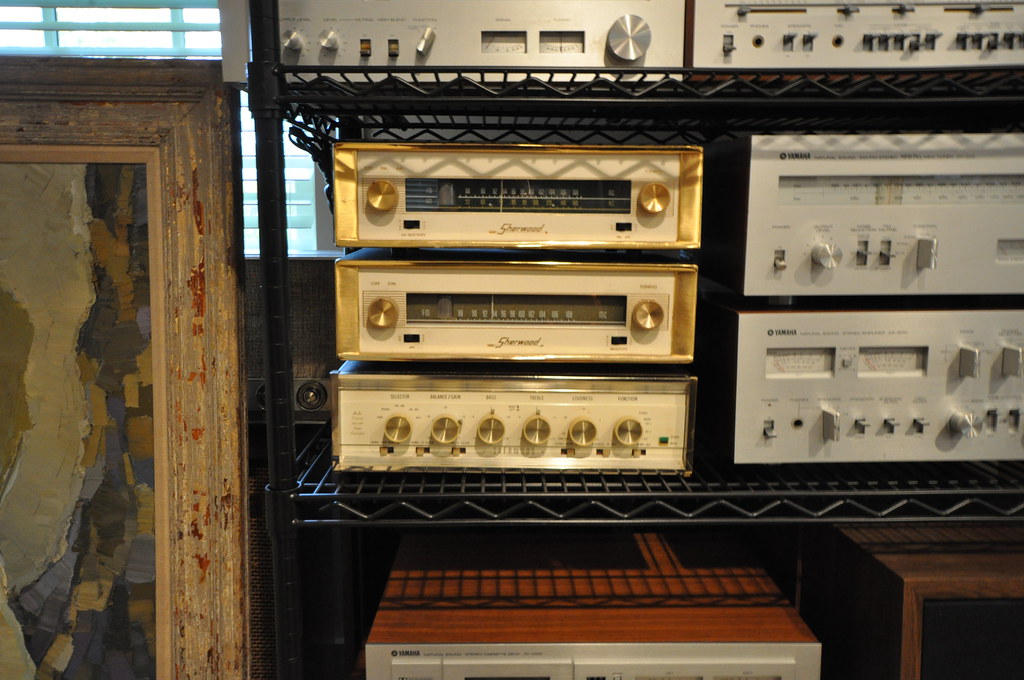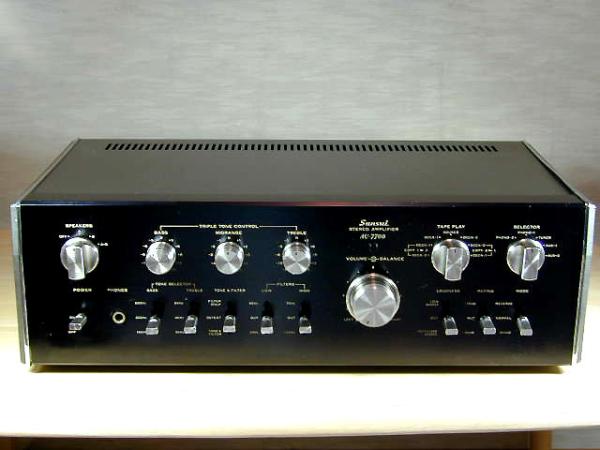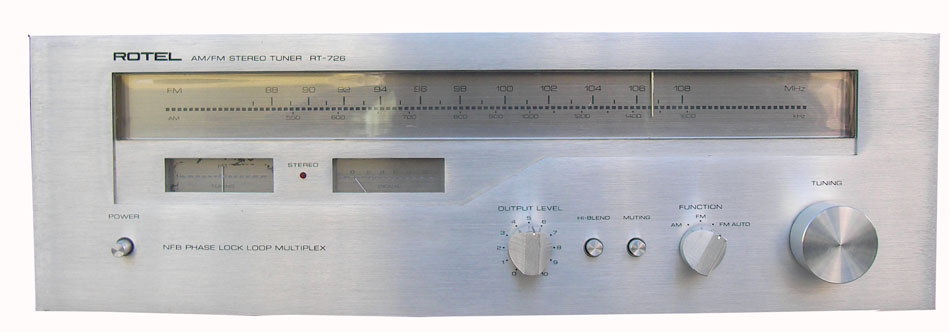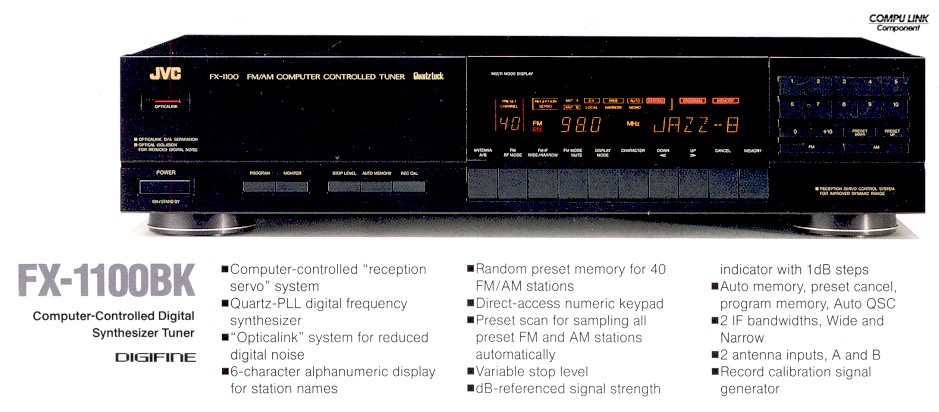Well -- I have next to no real wisdom about FM tuners, but I have one rather strongly held opinion.
There are two different paramaters that don't necessarily travel together in any given tuner -- I (somewhat inaccurately) call them "RF performance" and "AF performance". By the former, I mean how well the tuner works as a
radio: how sensitive it is (which really means what does the "quieting curve" look like as a function of input signal level), what is its selectivity, capture ratio, oscillator drift, overload tolerance, etc.
By the latter, of course, it's all of the usual "hifi" parameters -- flatness (and extension) of audio frequency response, harmonic distortion, phase linearity, signal to noise ratio, and whatever those ineffable parameters that make audio "sound good".
These two areas of performance, of course, are intertwined... but some of the early analog tuners get the AF oh-so-right even if, as radios, their performance may be mediocre at best. Some of the vaunted solid state analog, and many of the digital (frequency synthesis, that is) tuners just don't - to me - sound very good. Folks tend to blame the radio stations, but it's not just that (there
are still good sounding stations in most markets!). I
think that in the late 1960s (give or take a few years) the emphasis shifted from audio quality to (readily quantifiable) "radio" quality in the whole consumer tuner/receiver industry.
FWIW, as long as I can receive the signal of an FM radio station I want to listen to with "full quieting" (even if only in mono), I care much more about AF than RF performance
per se. As a sweeping generalization* (based on empirical though anecdotal experience), the analog tuner designs historically have done a better job getting the AF right, even if they aren't all that "hot" as radios (so to speak).
Again, FWIW, dollar for dollar, my long-term favorites for sound quality per dollar on the used (vintage) market are the Sherwood tuners of the late 1950s into the early/mid 1960s. I've yet to spend more than $50 for one, and I've also yet to buy one that didn't work well, and sound very, very good, as found. Are they the best? Heck no, but they typically cost
at least an order of magnitude less than the best and give tremendous satisfaction
if you don't need ultimate-quality "radio" performance but desire very good sonics.
 DSC_8058
DSC_8058 by
mhardy6647, on Flickr
(these two are mono, but will accept an outboard MPX decoder if one
must have stereo)
Obviously just my opinions, YMMV and all that.
Now, can someone help me get down off this soapbox? ;-)
EDIT: oh, and to actually respond to the question(!)

From my perspective, go analog if you care more about sound than "radio metrics"; go digital if you need the radio
oompf (e.g., you live on the fringe and need sensitivity or in the midst of the city and need selectivity). Try before you buy at your location, if at all possible.
Why not just keep lookin' 'til you find a TU-7700 and be done with it!
* and
all generalizations are false, including this one!


 doesn't match visibly. shallow, I know!
doesn't match visibly. shallow, I know!

 doesn't match visibly. shallow, I know!
doesn't match visibly. shallow, I know!



